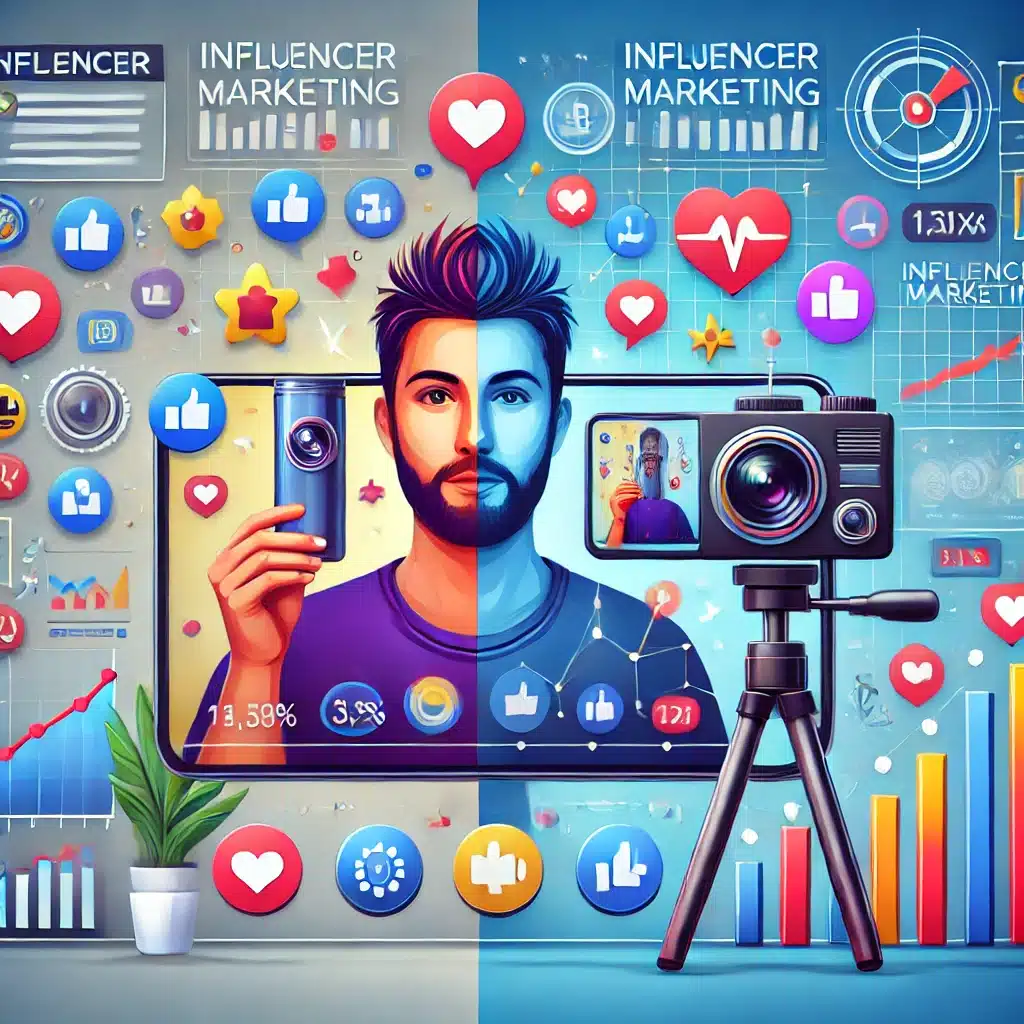When the word ‘influencer’ is mentioned, many people initially think of the lifestyle influencers from Instagram and the like. But influencer marketing is more than just product placements, holiday photos and fashion tips: Collaboration with influencers also plays an important role in the marketing mix in the B2B sector.
Influencer marketing involves companies working with various brand ambassadors and letting them speak for themselves. Basically, this is a hybrid of traditional paid advertising and PR in which other people and brands spread the message via their own channels. The experts test and evaluate a brand and help it to become better known thanks to their reach. Ideally, there is a large overlap between the influencer’s target group and the brand’s own, sometimes it is even completely congruent. The target audience can be either B2C or B2B, i.e. the communication can be aimed at consumers or other companies. However, influencer marketing for B2B differs from other brand collaborations in a number of ways. This checklist shows what companies need to look out for when selecting and working together.
1. Identify the right B2B influencer
Influencer marketing for B2B is about gaining authentic experts and opinion leaders as advocates for your own brand. Popular influencers in B2B include, for example, specialised journalists, scientists, industry insiders, business partners or employees. They do not necessarily have to be part of the target group themselves (although this is of course an advantage for a perfect brand fit). They are particularly attractive if their followers are potential customers!
2. Reach vs. target group fit
When working with B2C influencers, reach is one of the most important decision criteria for a paid collaboration. As a rule, companies aim to reach the largest possible number of potential customers first. The marketing objective is often to create awareness, i.e. to reach users who are not necessarily familiar with the brand or product. However, greater reach is usually accompanied by higher wastage, as more users are reached who are not part of the brand’s target group. With influencer marketing for B2B, on the other hand, the focus is generally not on the reach of the influencer, but on the target group fit. Accordingly, fewer users are reached overall, but those for whom the brand is of interest.
3. Consider different target group approaches
Influencer marketing for B2C thrives on the emotionality and enthusiasm of opinion leaders. This advantage can only be applied to B2B to a limited extent. Purchase decisions when working with companies are generally made less emotionally and more on the basis of facts and data. The target group is also more critical. This means that you need to meet the target group with what they want! Facts, figures and arguments emphasise the relevance of a product. In business networks, it can also make sense to integrate the product into a story. However, the influencer is ultimately responsible for the presentation. They know best what their followers want and are therefore able to report credibly and authentically. Companies can pave the way and support them with all the information and materials they need for the feature.
4. Duration of the collaboration
Long-term collaborations increase authenticity in influencer marketing. Instead of constantly promoting new products and brands, the credibility of the ambassadors is higher if they work with just a few companies, but at regular intervals. Nevertheless, long-term collaborations have so far been the exception rather than the norm. B2B influencer marketing is completely different: it is not uncommon for a collaboration to last several weeks, sometimes even years. The reason for this is the different products and services, which generally require more explanation and are aimed at a very specific specialist audience.
5. Corporate influencers as a speciality
Corporate influencers are a speciality in influencer marketing for B2B. This is not a classic, paid brand cooperation. Rather, it is employees who become brand ambassadors for their company. They do not aggressively promote the products offered by their brands, but instead either provide insights into their respective company or impart specialist knowledge. This emphasises the attractiveness of the respective companies as employers, while at the same time making it clear that the team is made up of competent experts. Corporate influencers increase the credibility of companies and make them more approachable for the target group. This allows potential customers, business partners or applicants to build trust. Corporate influencers do not always work directly with those responsible for public relations or marketing. Through lively activity in business networks such as LinkedIn or Xing or active participation in trade fairs and conferences, the status of corporate influencer sometimes arises all by itself. Companies should capitalise on the proactive initiative of these employees and, for example, allow time for influencers to produce content for their channels. At the end of the day, the best advertisement for a company is satisfied team members who willingly share their pride and professional expertise with the outside world!



